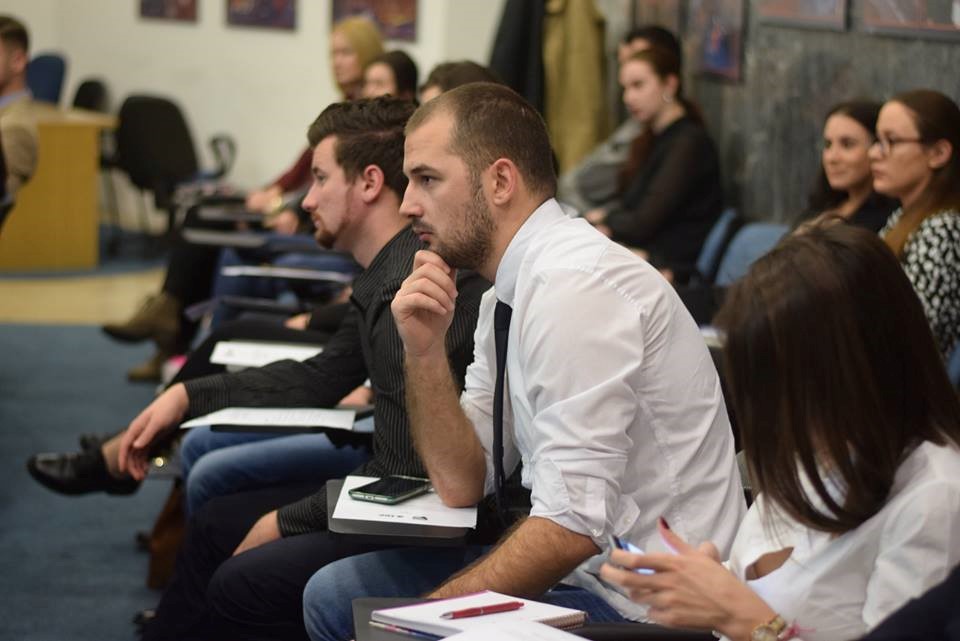Due to its multicultural, multiethnic composition and complex political system, a stable BiH is imperative for security within the fragile Western Balkans. BiH’s security is threatened by the collision of influence and interests of several global actors. Thus, in addition to benefitting BiH’s domestic interests, BiH’s potential accession to European institutions would clearly solidify its standing within the international community.
Recently, the Consortium for Elections and Political Process Strengthening (CEPPS is a consortium of organizations dedicated to strengthening democracy through partnership) and IRI’s Advanced Leadership in Politics Institute (ALPI) helped two young political party leaders find common ground to bring their parties together in Bosnia and Herzegovina (BiH). Social Democratic Party (SDP) member Malik Garibija and Democratic Front (DF) member Amir Vrca organized a conference on the importance of BiH’s integration into the Euro-Atlantic community to ensure greater security at home and in the region.
ALPI is a two-year program that brings together 25 diverse young leaders from 10 different political parties. Participants exchange experiences and knowledge, expanding their networks and creating opportunities for cross-party engagement. Speakers and trainers share their understanding of the Euro-Atlantic integration process, its benefits and its importance to BiH.
Malik and Amir attended ALPI modules in January and April 2018 and used their experience to expand knowledge about the North Atlantic Treaty Organization (NATO) in the region. Through the Institute, speakers from the EU Delegation, the Office of the European Union Special Representative and the NATO Headquarters in Sarajevo taught Malik and Amir about the importance of BiH’s collaboration with the Euro-Atlantic community as a means of ensuring greater security at home and in the region. The two young leaders recognized this as an opportunity that both their parties could support and used their experience to hold a conference, entitled “Why NATO?”
Malik and Amir received support from the BiH Parliament and hosted the conference on their premises. The event was symbolically held on the anniversary of NATO’s establishment in the BiH Parliamentary Assembly. With support from CEPPS/IRI, the conference’s three panels featured high-level speakers including Rohan Maxwell, Senior Political Military Advisor and Chief of the NATO Political Military Advisory Section at thAe NATO Headquarters in Sarajevo; Davor Vuletić, Representative of the Federation of BiH Parliament House of Representatives; Zekerijah Osmić, Vice President of the Social Democratic Party Governing Board and former BiH Minister of Defense; and Branimir Jukić, Democratic Front’s Political Academy Committee on Foreign Affairs Coordinator, the former BiH Ambassador to Montenegro and to the NATO Mission in Brussels.
Young members from SDP and DF learned about the structure and functions of NATO, the importance of BiH’s NATO integration for greater security and the benefits and challenges of becoming a NATO member nation. Attendees indicated great interest in the conference, asked questions and participated in the discussions that followed each session.
Malik and Amir believe that events that gather political representatives with diverse political orientations, such as this one, are particularly vital for young politicians to collaborate across party lines for positive change. Mr. Maxwell emphasized in his speech that, “Young people can contribute by educating themselves about this topic [BiH’s NATO integration] to begin with.”
The conference received media coverage from some of the most respected BiH regional media outlets, such as FENA, Klix.ba and Oslobodenje.
This collaborative event is important for the impact and sustainability of CEPPS/IRI’s ALPI program, as it indicates that ALPI participants are sharing knowledge gained during the modules and exchanging views and opinions with their party colleagues, friends and the public. With October parliamentary elections around the corner, cross-party cooperation is extremely low. But Malik and Amir’s event showed that collaborating across party lines, even in a contentious pre-election environment, is possible and ultimately beneficial for all.
Top